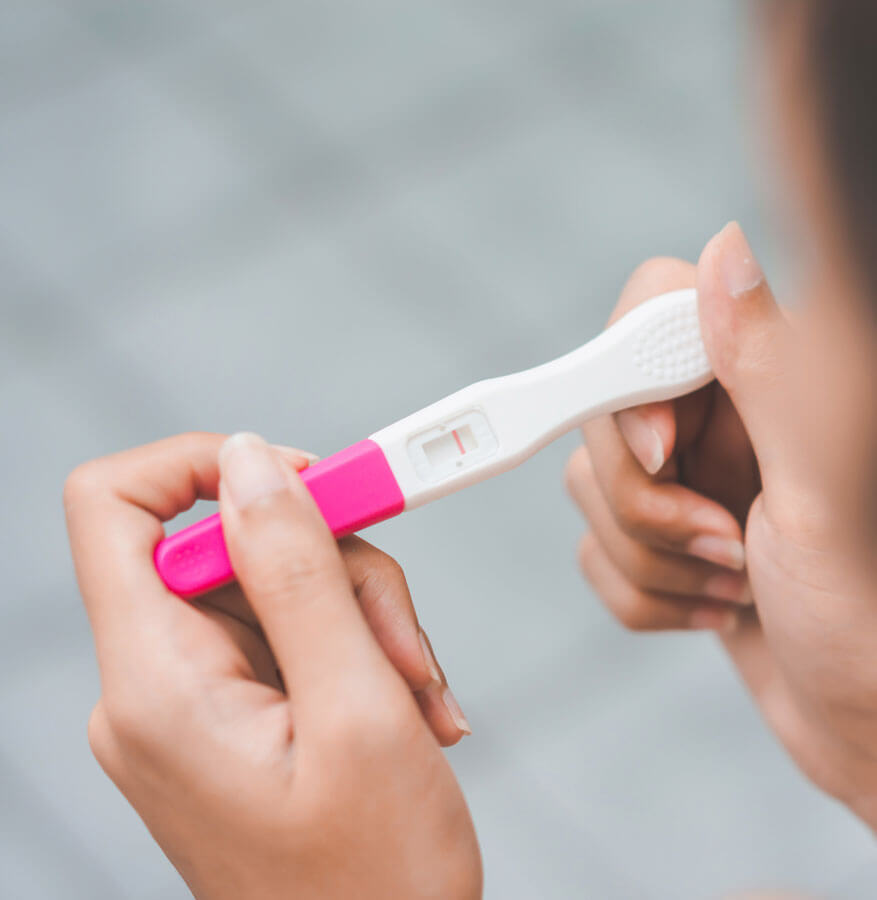Approximately 5-10% of all women are affected by PCOS
Which symptoms are shown?
Women with PCOS produce increased amounts of male hormones (androgens), especially testosterone. PCOS is a group of various symptoms, i.e. a complex of symptoms.
Polycystic ovary syndromeFrequently Asked Questions
Understanding PCOS. Treat PCOS.
What causes PCOS?
It is suspected that hereditary factors and environmental influences play a role in the development of PCOS. An involvement of genetic factors is even likely. However, the exact causes of PCOS are not known.
Which symptoms do appear?
Women can experience one or all of the following symptoms: irregular or absent menstruation, hair loss, infertility, insulin resistance/diabetes, obesity, increased levels of male sex hormones in the blood, excess facial and body hair, acne, more than 12 egg vesicles on the ovaries (polycystic ovaries).
How is PCOS diagnosed?
PCOS is usually diagnosed in two ways: by ultrasound or blood test. An ultrasound scan will show ifa woman has polycystic ovaries, while the blood test will reveal the presence of male hormones.
Can PCOS be treated?
When there are no immediate plans for children, an antiandrogenic contraceptive, i.e. birth control pill, is often used. Antiandrogenic contraceptives contain female hormones: estrogens and synthetic progestogens. Birth control pill also help regulate menstrual cycles and improve skin problems.
Is medication always necessary?
In addition to therapy with medication or dietary supplements, a healthy, balanced diet, along with exercise, is always recommended. A healthier lifestyle reduces the insulin resistance often associated with PCOS and significantly improves the pancreas's response to insulin.
PCOS and desire to have children - is that possible?
PCOS does not have to be the end your dream of having children.
A gynecologist can certainly advise you on how you can fulfil your desire to have children despite PCOS.




